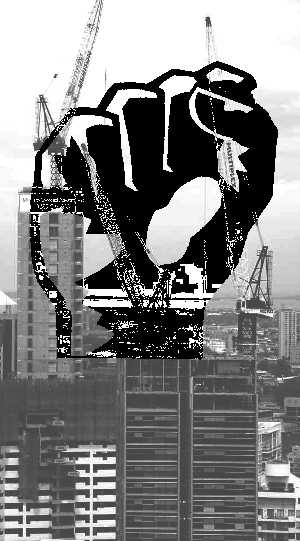Outrage over union moves
 Fallout from the CFMEU crackdown continues.
Fallout from the CFMEU crackdown continues.
The Construction, Forestry, Maritime, Mining, and Energy Union (CFMEU) is embroiled in a national controversy following the federal government's decision to place its construction division into administration.
The move, announced by Attorney-General Mark Dreyfus on August 23, has sparked widespread protests, union outrage, and political backlash, highlighting deep divisions over the role of unions in Australia’s construction industry.
In response to the government's intervention, tens of thousands of workers downed tools and took to the streets in cities across Australia, including Sydney, Melbourne, Brisbane, Perth, Adelaide, Canberra, and Cairns last week.
The protests brought construction projects to a standstill, with significant disruption reported in central business districts and major infrastructure sites.
The largest demonstrations took place in Sydney’s Martin Place and Melbourne’s Trades Hall, where union members and supporters gathered in solidarity with the CFMEU.
The protests included participants from a wide range of unions, including the Australian Manufacturing Workers' Union, Electrical Trades Union, and the plumbers' union.
The rallies were marked by a strong sense of anger and betrayal, particularly against the federal Labor government, which many workers feel has turned against the union movement.
The federal government's decision to place the CFMEU’s construction division into administration was driven by serious allegations of criminal infiltration, corruption, and links to organised crime within the union.
Prime Minister Anthony Albanese has defended the government's actions, stating that the crackdown was necessary to “clean up” the sector.
Albanese also warned workers participating in the protests that they could face consequences for engaging in unprotected industrial action, which is illegal under the Fair Work Act and can result in penalties, disciplinary action by employers, and lawsuits from affected businesses.
The Fair Work Ombudsman (FWO) has since urged employers to report any unlawful industrial action at their workplaces, highlighting the government's determination to enforce compliance with workplace laws.
The FWO’s statement points out that engaging in or organising unprotected industrial action is a serious breach of the Act, and it has called for vigilance from employers and workers alike.
Within the CFMEU, the response to the government’s actions has been one of outrage and defiance. Paddy Crumlin, National President of the CFMEU and National Secretary of the Maritime Union of Australia, criticised the administration as “ill-advised” and warned of the “dire consequences” it would have on union members, officials, and staff.
He said that many of the 270 officials dismissed as part of the administration had not been implicated in any wrongdoing and argued that the administration was undermining the union's ability to protect worker safety and negotiate better conditions.
Crumlin also pointed out that the administration has led to significant disruptions in the union’s operations, particularly in areas such as site safety management and the finalisation of Enterprise Bargaining Agreements (EBAs).
This disruption, according to Crumlin, has emboldened employers to attempt to walk away from agreements that were on the verge of being finalised before the union was placed into administration.
Troy Gray, Victorian Secretary of the Electrical Trades Union, has condemned the delays in approving upcoming EBAs, describing the situation as “appalling”.
He argued that construction workers, who have been waiting more than 12 months for their last pay rise, are now facing further delays in receiving their cost-of-living pay increases due to the actions of the Fair Work Commission (FWC).
The CFMEU’s negotiated deals, which included pay rises of up to 26 per cent over five years in states like Queensland, are now stalled in the FWC, with many agreements under prolonged “member consideration” or “initial assessment” stages.
Gray accused the FWC of acting as “judge, jury and executioner” in its handling of these agreements, and he warned that the Victorian construction industry is becoming a “tinderbox” of anger and frustration.
On the other side, industry groups such as the Master Builders Association have expressed concerns about the terms of the EBAs, particularly clauses that they claim give the union undue control over subcontractors and site operations.
These groups have argued that such clauses could lead to increased construction costs and decreased flexibility for employers.
The political ramifications of the CFMEU crisis are significant, with the federal government’s decision receiving both support and criticism across the political spectrum.
While the government has defended its actions as necessary for maintaining the integrity of the construction industry, the controversy has had an impact on voting intentions, with recent polls showing a narrowing gap between the ALP and the Coalition.
In Victoria, the state government is grappling with its own construction industry issues, following the release of an interim report by former justice department chief Greg Wilson.
The report, commissioned by Victorian Premier Jacinta Allan, highlights a “rotten culture” within the state's construction sector, driven by fears of reprisal and a lack of effective oversight on government projects.
The report has prompted calls for stronger powers for integrity agencies such as the Independent Broad-based Anti-corruption Commission (IBAC) to investigate corruption on construction sites.







 Print
Print



